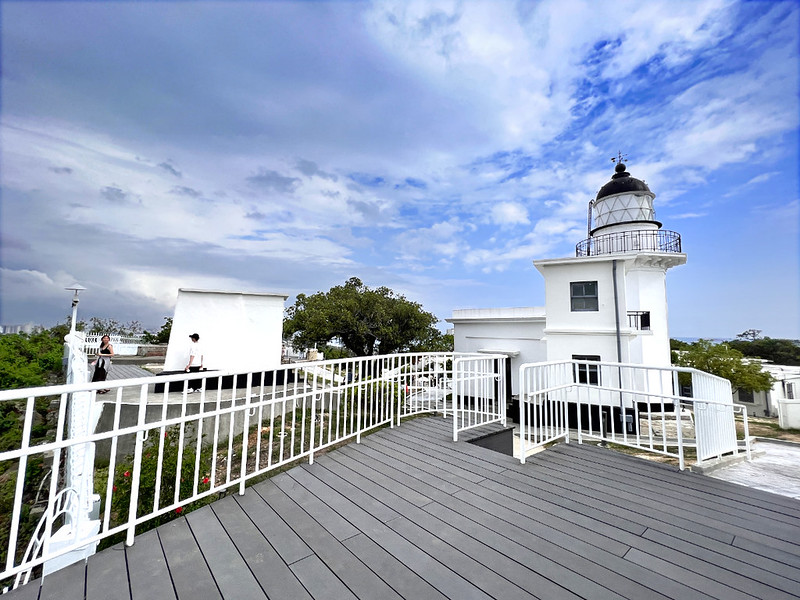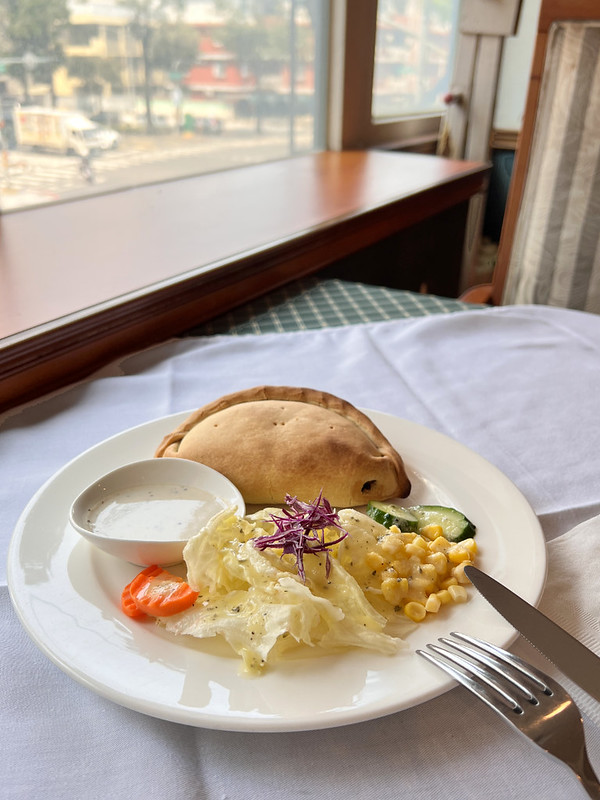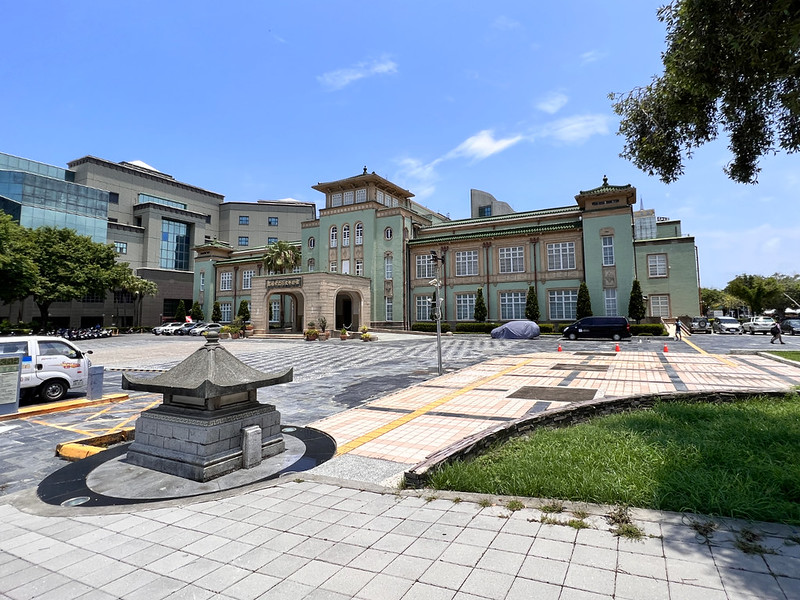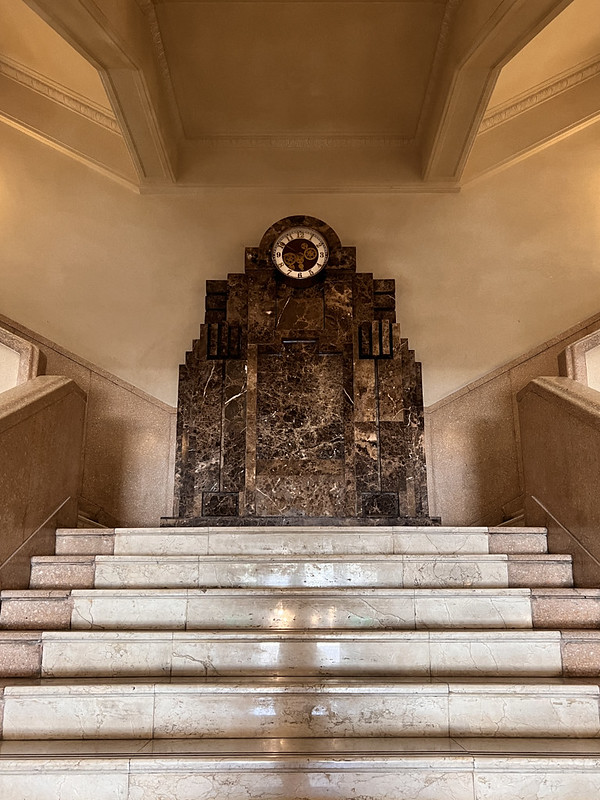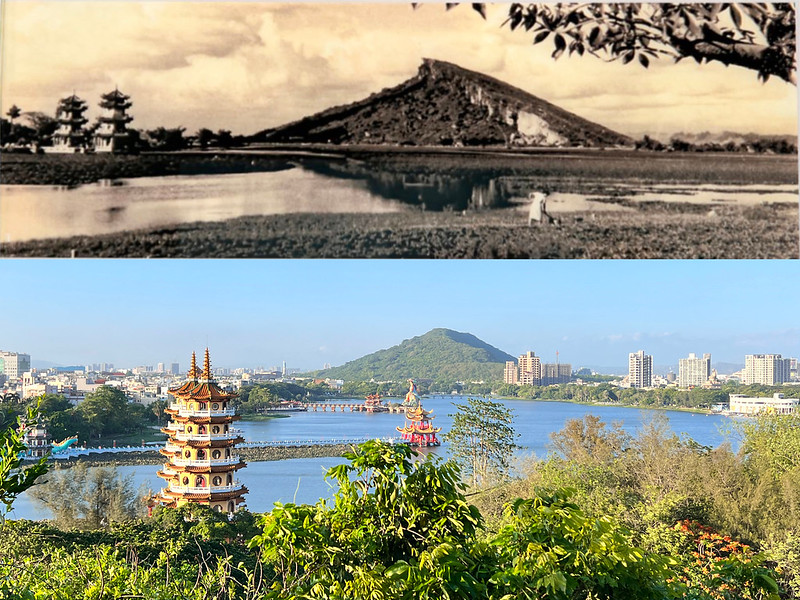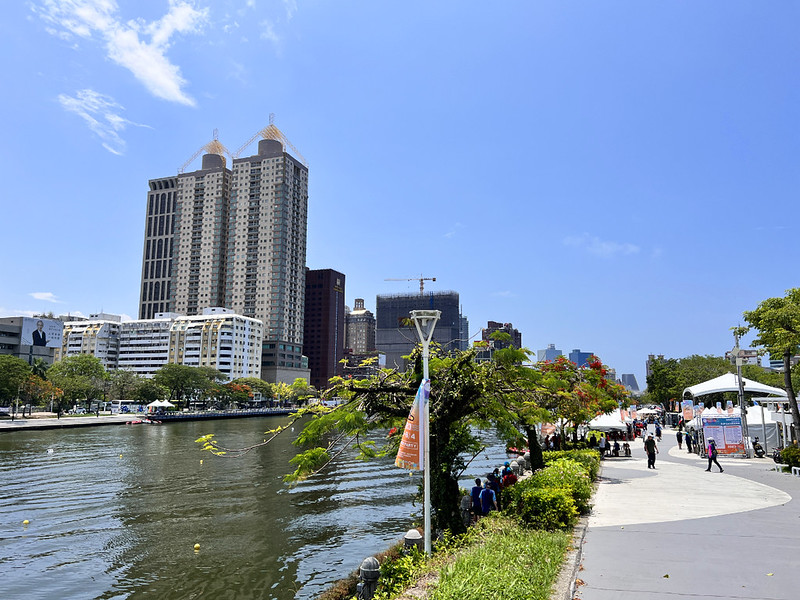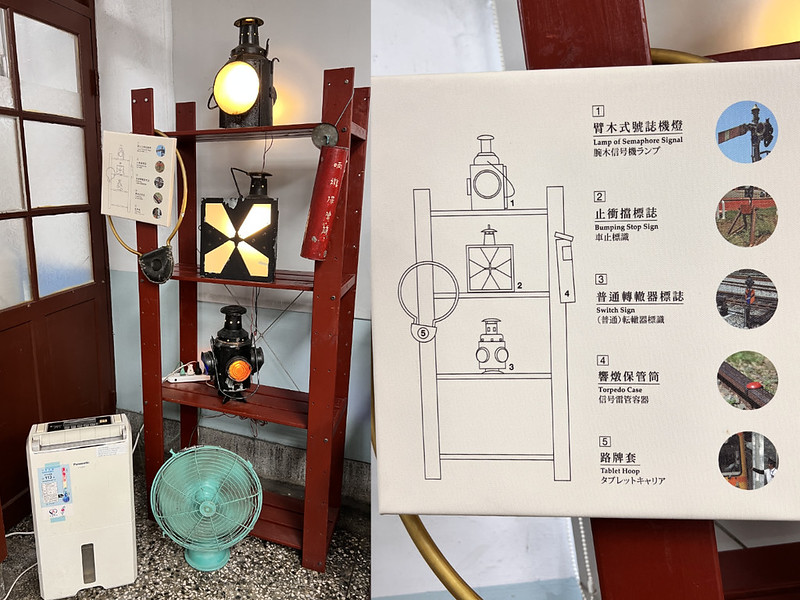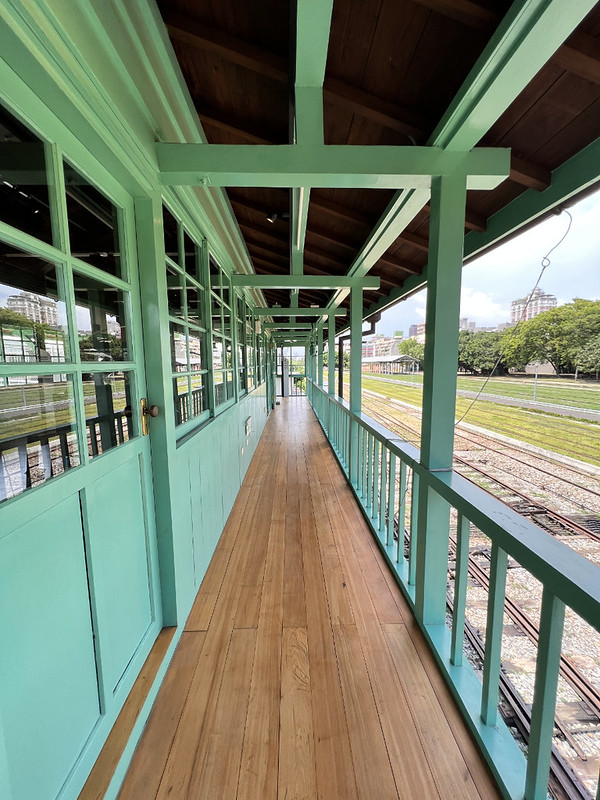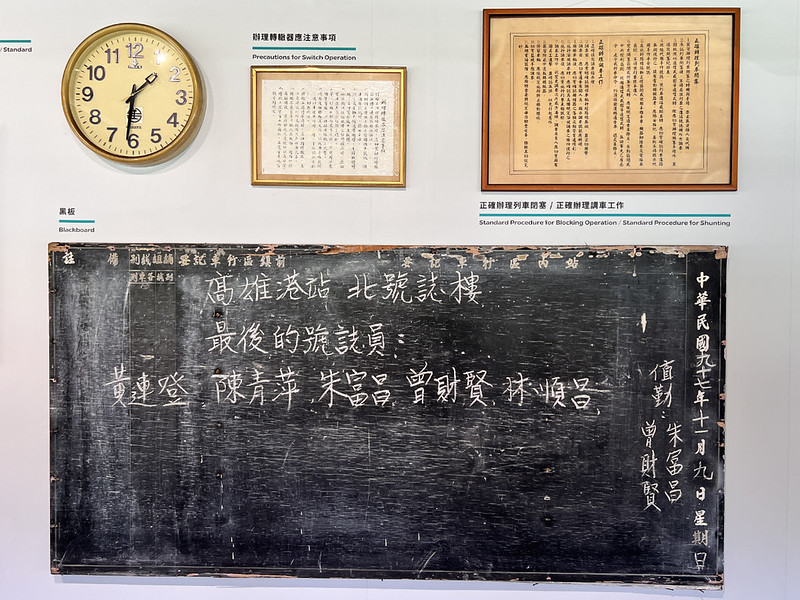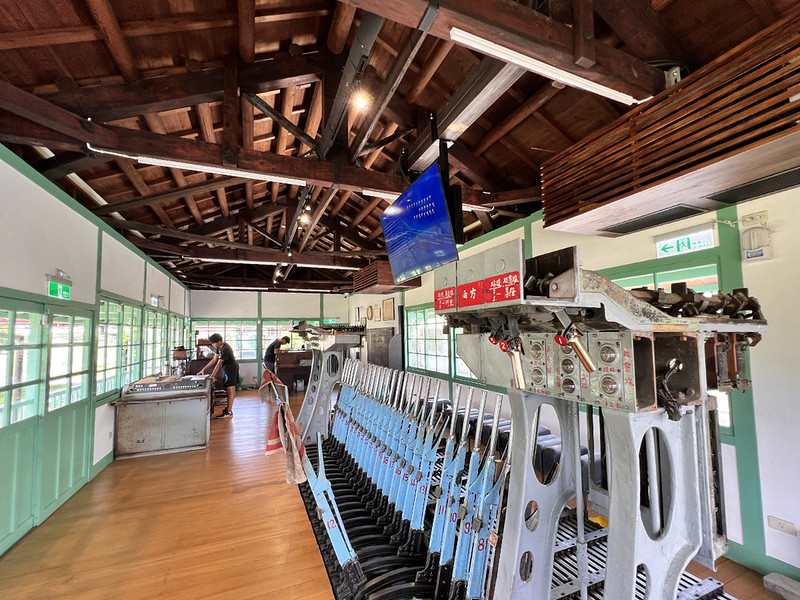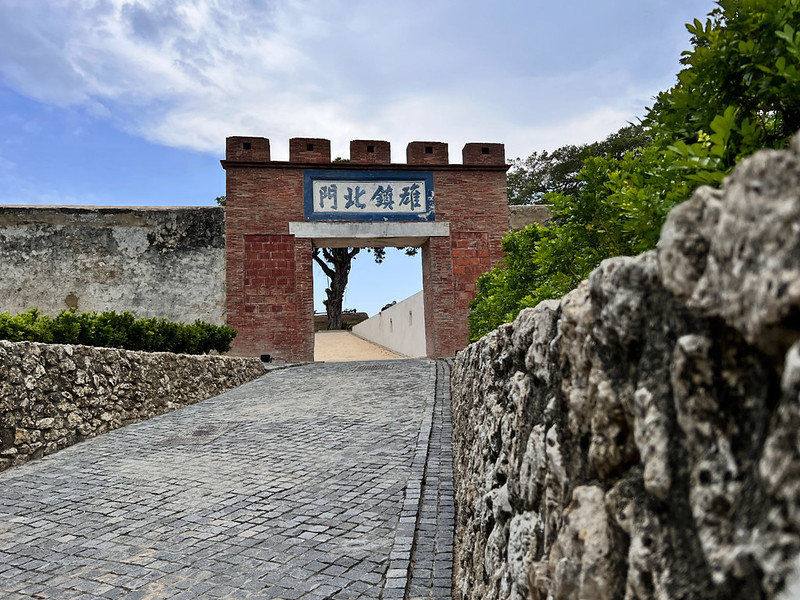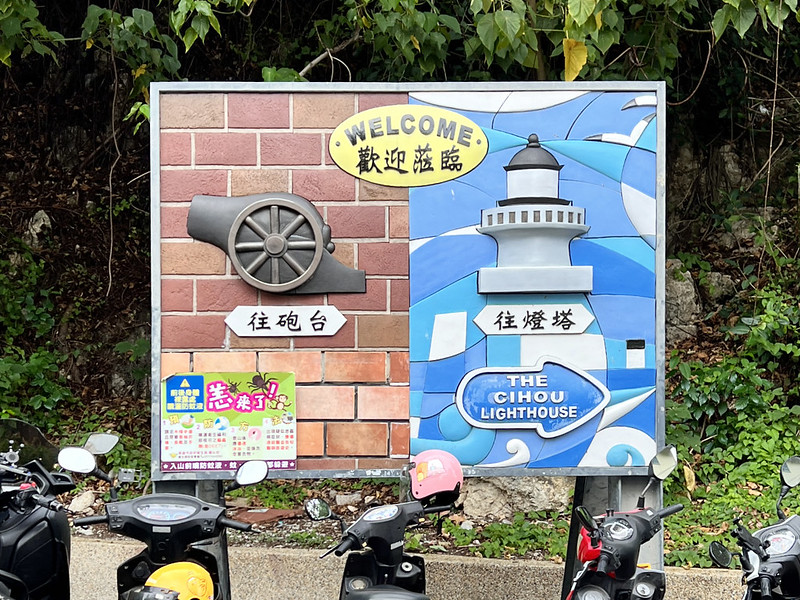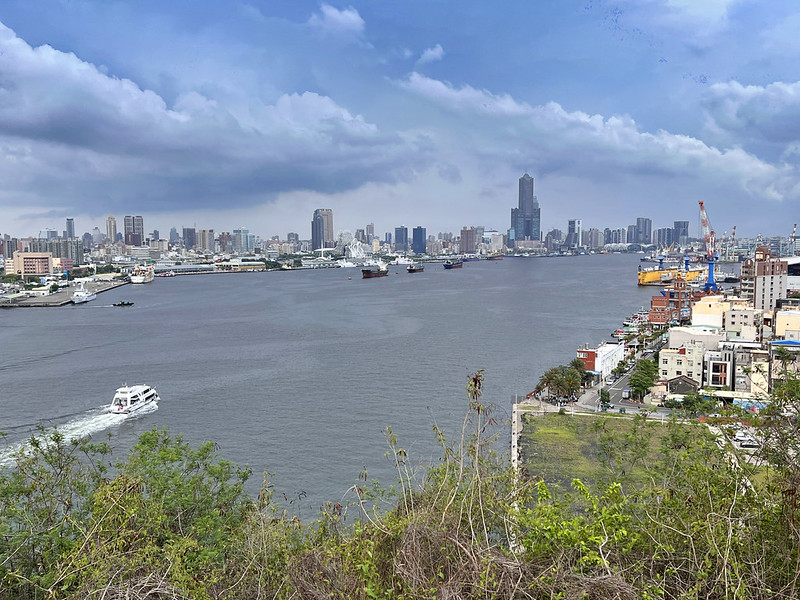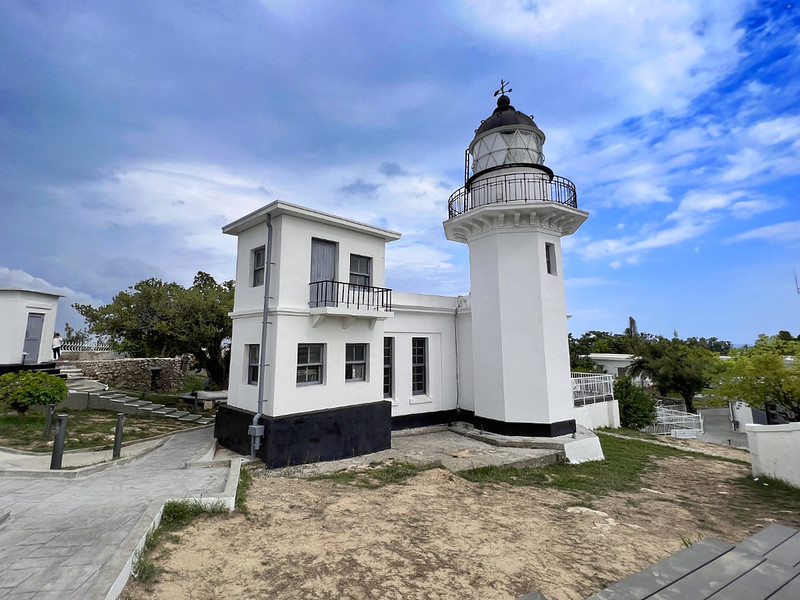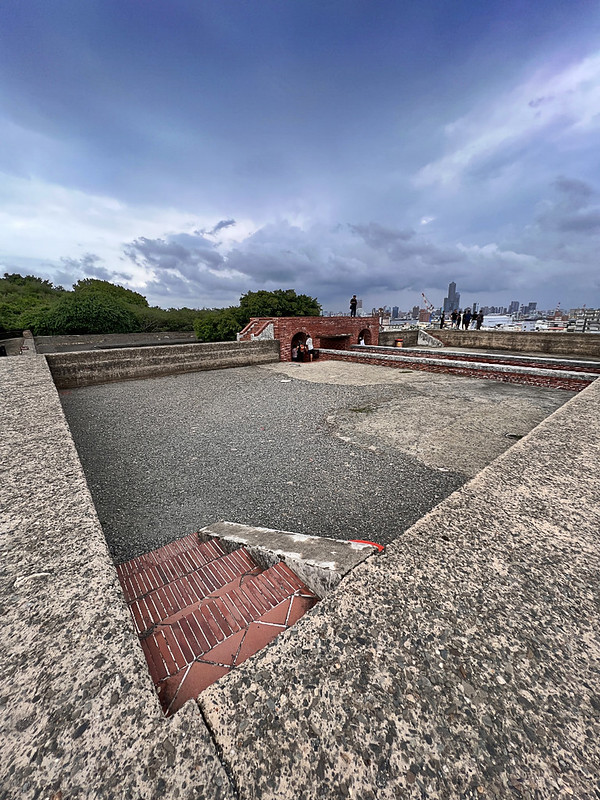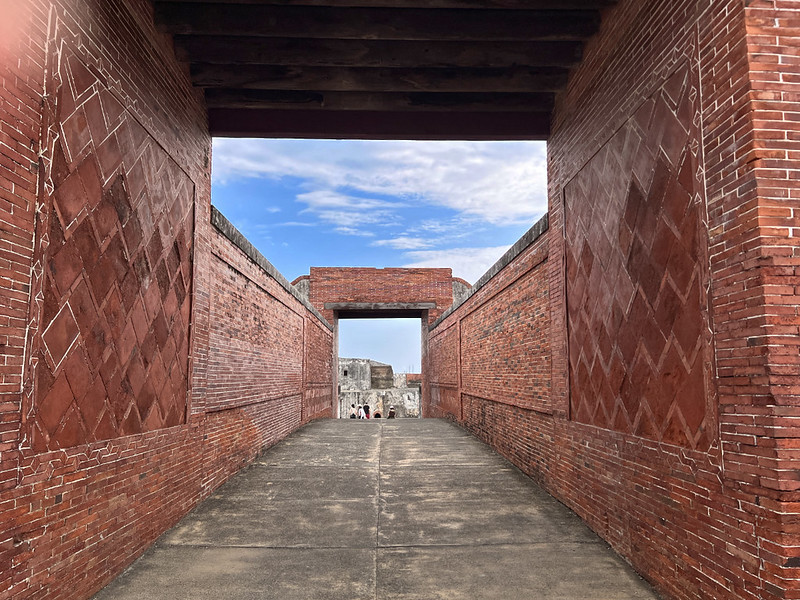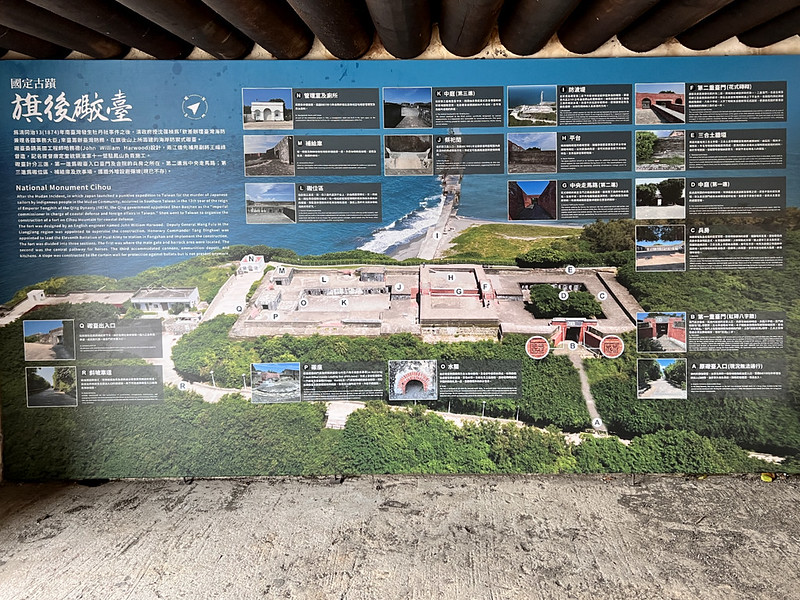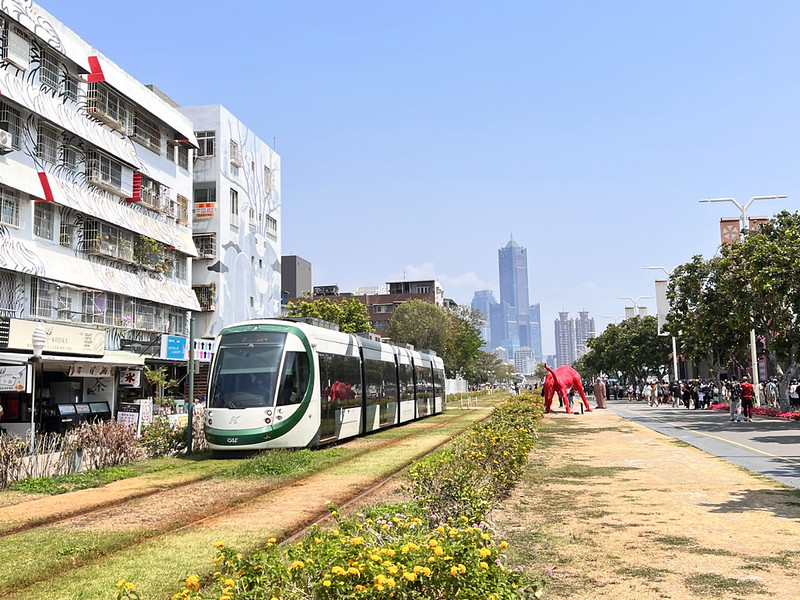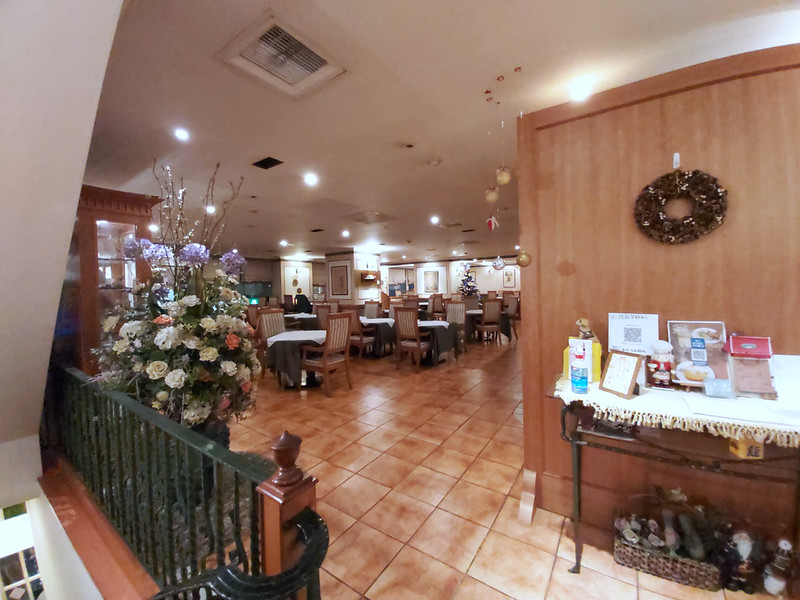Cruising Kaohsiung's Past: Ferry to Cihou Lighthouse & Yancheng's Heritage Walk
Join me on a journey as I explore the scenic trails and hidden gems of my hometown, Kaohsiung.
As a native who grew up in Kaohsiung, returning to my hometown always fills me with nostalgia and wonder.
Visiting the Kaohsiung Museum of History, the old City Hall, gave me a complete understanding of the past of
this port city.
While Yancheng's railway tracks echo with stories, the Cihou Lighthouse and Fort are timeless patrols guarding
the city's rich heritage.
And nothing feels more like home than savoring flavors from a cherished eatery, a constant in my ever-changing
city. Each visit revives my childhood memories as I explore familiar yet ever-evolving streets.
Disclaimer:
All content is for inspiration only. Use Taiwan Hikes' suggestions at your own risk. We are not responsible for any losses, injuries, or damages.
Taiwan Hikes may include affiliate links. When you purchase through these links, you support our ability to continue providing FREE content — at no additional cost to you.
All content is for inspiration only. Use Taiwan Hikes' suggestions at your own risk. We are not responsible for any losses, injuries, or damages.
Taiwan Hikes may include affiliate links. When you purchase through these links, you support our ability to continue providing FREE content — at no additional cost to you.
Table of Contents:
- Kaohsiung's Historical Heartbeat - Exploring the Kaohsiung Museum of History and the Old City Hall
- Uncovering Yancheng's Railway Tales and Strolling the British Consulate Residence at Takou via Sizihwan Tunnel
- Take A Ferry to Hike - A Journey from Gushan Port to Explore the Cihou Lighthouse and Cihou Fort in Cijin
- A 25-Year Love Affair - Celebrating a Quarter-Century at My Beloved Restaurant - Europe Pie Shop
- Free Guides: How to Apply for Hiking Permits in Taiwan. Or Hire Me!
- Related Posts
Exploring Taiwan? Save Time with the Ultimate 2026 Hiking Guide! Discover the top hikes in every city and
county across Taiwan—all accessible by public transport (bus links available). We've spent 35+ hours
researching the best trails and transit options, so you can skip the hassle and start your adventure!
Map
Kaohsiung's Historical Heartbeat - Exploring the Kaohsiung Museum of History and the Old City Hall
How to Get There:
Take Kaohsiung Metro (KRTC) and get off at O2 Yanchengpu Station or O4 City Council
Station. Walk about 10 minutes to reach the museum.
What to See:
There are several permanent exhibitions, such as the history of Kaohsiung, the rivers of Kaohsiung, the 228
Incident, and the railways of Kaohsiung.
Besides the exhibitions, this building is beautiful with an imperial crown style, but the interior is elegant
and simple.
When you enter, you are greeted by the Y-shaped stairs with a beautiful clock against the wall.
While browsing the old photos, I was delighted to see the old image of Mt.
Banping 半屏山.
As a person who grew up in Kaohsiung many years ago, the Kaohsiung Museum of History is still the old city
hall to me. In high school, I took a bus at the station nearby for 3 years. However, I have never visited this
extraordinary building since it was opened to the public in 1998.
Your support empowers Taiwan Hikes to create more FREE content, making your hiking adventures in Taiwan
even more enjoyable. Click "Buy Me A Coffee" or use our affiliate links to support.
Admission Fee: Free
About Kaohsiung Museum of History 高雄歷史博物館 and Yancheng District 鹽埕區
Originally the Kaohsiung City Hall, inaugurated in September 1939, this building became the Kaohsiung Museum
of History in 1998. After serving as the city government's headquarters from 1945 to 1992, it was designated a
Kaohsiung City Historic Site in 2004. Discover more at the museum's website.
Historically known for its salt evaporation ponds, Yancheng District evolved into Kaohsiung's administrative
and commercial heart during the Japanese era. By the early 20th century, it resembled Japan's Ginza, buzzing
with nightlife and a fusion of Western and Japanese styles.
Although its commercial prominence shifted over time, recent efforts have rejuvenated Yancheng, integrating
cultural landmarks like the History Museum and Pier-2 Art Center to celebrate its rich heritage.
Nearby Attractions:
Love River is right next to the Kaohsiung Museum of History. When I was a kid,
Love River was notorious for its smell and pollution. Now, it's getting better and has become a tourist
attraction. There are many places to visit around here. Please see the Related Posts below for details.
Uncovering Yancheng's Railway Tales and Strolling the British Consulate Residence at Takou via Sizihwan Tunnel
How to Get There:
Take the Kaohsiung Metro Orange Line and get off at O1 Sizihwan Station exit 2. You will see the Takao Railway Museum 舊打狗驛故事館 right
away.
What to See:
Whether you are a railway fan or not, this place is worth a visit.
Admission Fee: Free
About the Railway History in Takao Port (Kaohsiung Port):
In 1895, following Japan's rule of Taiwan, significant developments unfolded in transportation infrastructure.
The Japanese government spearheaded the construction of the railway system and transformed Takao Port (now
Kaohsiung Port) into a bustling commercial hub. This initiative aimed to bolster Taiwan's resource
exploitation and industrial growth.
The first Takao train station, operational since 1908, was initially located about 1 km north of the current
Takao Railway Museum. As the port expanded through dredging and land reclamation, the station moved south,
giving rise to 'Hamasen' from the Japanese term for 'shoreline.'
Hamasen, during the Japanese era, emerged as a crucial junction for maritime and land transport, linking
passengers to Southeast Asia. The area around Hamasen and Sankuaicuo became a hotbed for industrial activity,
marking the start of Taiwan's industrial age.
However, by the 1990s, shifts in labor markets, environmental policies, and globalization led to the
relocation of heavy industries overseas, significantly impacting Kaohsiung's industrial sectors. This change,
coupled with the rise of highway freight transport, resulted in the decline of railway freight and the
eventual dismantling of parts of the port line.
The Kaohsiung City Government proposed repurposing the idle Takao Port Station in 2010. On October 24th, it
was revitalized as the Takao Railway Museum, preserving the rich legacy of the Takao Port Station.
About Kaohsiung Port Station North Signal Tower 高雄港車站北號誌樓:
During Japan's rule over Taiwan, major train stations featured signal towers, but today, only four remain. Kaohsiung
Port Station's North Signal Tower spared from renovation due to its off-main-line location, stands as
Taiwan's sole signal tower with a fully operational interlocking system.
This unassuming two-story structure is a cultural gem in railway history. Decommissioned in 2008, it's been
preserved in its original form, even influencing the Kaohsiung Light Rail's route to accommodate its
significance.
The North Signal Tower and the Kaohsiung Station building demonstrate the significance of the railway and
Kaohsiung history and were registered as historical sites in July 2010, now part of the Takao Railway Museum.
The North Signal Tower is open only from 10:00 - 18:00 on Saturdays and Sundays and is free to the public.
Nearby Attractions:
Hamasen Museum of Taiwan Railway 哈瑪星鐵道文化園區:
Opening hours: 10:00 to 18:00, Monday to Thursday; 10:00 to 19:00, Friday to Sunday; closed on Tuesdays.
Steeped in history, the Kaohsiung Butokuden, a martial arts training hub, mirrors Taiwan's past under Japanese
rule. Originating from Japan's 1895 police system, these Budokans were pivotal in maintaining order.
The Kaohsiung Butokuden, a striking Japanese-style brick building completed in 1924, stands at 36 Dengshan
Street, Gushan District. Post-World War II, it transitioned from a police training center to Gushan Elementary
School's stewardship, eventually succumbing to neglect. Resurrected in 1999 as a historic site, it underwent a
transformative restoration by 2004.
Sizihwan Tunnel and National Sun Yat-sen University (NSYSU) 國立中山大學
As a small child growing up in Kaohsiung, Sizihwan Tunnel had a unique appeal to me. The tunnel was much
darker during that time, and the dim flickering lights added to the creepy atmosphere.
Yet, what awaited after the dark was the campus and the spectacular seashore landscape. Watching the Sizihwan
Sunset from the breakwater was one of my favorites when I was young.
The British Consulate at Takou 打狗英國領事館文化園區(山上園區)
If you come here long before the sunset, you can't miss the British Consulate at Takou. Before reaching the
beautiful building, embrace the steep steps. You can read Foreigners in Taiwan's post about
visiting this building.
Formerly known as Shaochuantou Fort 哨船頭砲臺, the Xiongzhen Beimen in Kaohsiung's Gushan District is a historic
artillery fort and gate site. Designed by a British engineer and finished in 1876, it once guarded Taokuo Port
alongside Cihou Fort.
After falling into disuse during Japanese rule, it served as a port signal control station, with its cannons
removed and only the curved gun emplacements remaining. Declared a third-grade historic site by Taiwan's
Ministry of the Interior in 1985, it is now a designated historic monument of Kaohsiung City.
Take A Ferry to Hike - A Journey from Gushan Port to Explore the Cihou Lighthouse and Cihou Fort in Cijin
How to Get There:
Take the Kaohsiung Metro and get off at Sizihwan Station or Kaohsiung Light Rail and get off at the Hamasen
Station. Then, walk to Gushan Port to take the ferry. The distance is around 600 meters.
What to See:
Growing up in Kaohsiung, this was my first time visiting Gushan Port, Cihou Lighthouse, and Cihou Fort, and I
wondered why it took so long. I wasn't new to Gushan Port, but now it has transformed, and the ferry trip gave
me a fresh eye on my hometown.
The ferry to Cihou offers spectacular views of the city's skyline, perfect for soaking in the urban landscape.
After getting off the ferry, finding the entrance to Cihou Lighthouse took a while, but it was relatively
easy.
Several spots on the road to the lighthouse reveal the grand view of the Kaohsiung Port. After finishing the
last steps to the lighthouse, I was impressed by the picturesque Cihou Lighthouse. Its charming architecture
and location delight history buffs and casual visitors.
Delving into the past at Cihou Fort (Qihou Fort), I could see why this place
was a crucial position to defend the old Takou. Besides the rich heritage, these sites blend scenic beauty,
architectural elegance, and historical intrigue, making them must-visit destinations in Kaohsiung City.
Admission Fees:
The Gushan-Cijin (Qijin) route 鼓山旗津航線: NT$30 per person. It's NT$20 if you swipe an EasyCard or iPass. You can
ride your scooter or bike to the ferry, too. Please see Kaohsiung City Shipping Company's website for details.
It's free to visit Cihou Lighthouse and Cihou Port.
About Cihou Lighthouse 旗後燈塔/高雄燈塔:
Standing atop Cihou Mountain in Kaohsiung's Qijin District, Cihou Lighthouse (Qihou Lighthouse),
aka the Kaohsiung Lighthouse, is a historic maritime beacon.
This 15.2-meter tall, white octagonal structure was originally designed by British engineer John Reginald
Harding and built in 1883. It originally featured a Western-style design with a sixth-order fixed light,
visible for about ten nautical miles, and equipped with instruments from the UK.
It underwent a Japanese-led reconstruction in 1916, resulting in its current elegant form.
With its picturesque balcony and commanding views, the lighthouse symbolizes the city's rich maritime history
and offers a stunning sight of Kaohsiung Harbor.
About Cihou Fort 旗后砲台:
Located at the northern tip of Qijin, the Cihou Fort has long been a strategic military site guarding the
entrance to Kaohsiung Port. Its military significance dates back to the early Qing dynasty, with
fortifications established following the 1874 Mudan Incident.
Enhancing coastal defenses, the Qing government hired British officer J. W. Harwood to construct the Cihou and
Shaochuantou Forts (Xiongzhen North Gate), leveraging the terrain for optimal protection and views.
The Cihou Fort was designated a second-level historic site in 1985 and then was upgraded to a national
historic site by Taiwan's Ministry of Culture in 2019.
Nearby Attractions:
The Cihou Tianhou Temple, Cihou Tianhou Temple, or
Chijin Mazu Temple 旗后天后宮, 旗津馬祖廟, one of the oldest temples in Kaohsiung City, was established
around 1673. Fishermen, adrift during a typhoon, discovered this ideal spot for fishing and settlement. They
returned to their hometown, gathered fellow villagers, and relocated here, bringing the revered Mazu, the
fisherman's guardian deity, from Meizhou.
The temple was designated a level three historic site (now a municipal historic site) in 1985. After a
three-year restoration completed in 2020, the temple celebrated its re-inauguration on October 16, 2021.
Pier 2 Art Center and Kaohsiung Music Center: Although Pier 2 Art
Center and Kaohsiung Music Center are not close to Cijin, they are easy to reach via
Kaohsiung Light Rail. Pier 2 Art Center is great for exploring Kaohsiung's artistic spirit. This area is a
converted warehouse district now bustling with contemporary art and creativity.
Within walking distance, you can continue to experience the dynamic rhythms of the Kaohsiung Music Center.
These iconic destinations offer a blend of visual and auditory delights, making them essential stops for any
art and music lover visiting the city.
A 25-Year Love Affair - Celebrating a Quarter-Century at My Beloved Restaurant - Europe Pie Shop
How to Get There:
Take Kaohsiung Metro Red Line and get off at Sanduo Shopping District Station or R8 三多商圈站.
Or LRT (Kaohsiung Light Rail) and get off at Kaohsiung Exhibition Center Station or C8 高雄展覽館站.
Europe Pie Shop Map
Or LRT (Kaohsiung Light Rail) and get off at Kaohsiung Exhibition Center Station or C8 高雄展覽館站.
Europe Pie Shop Map
What to Expect:
For over 25 years, I've cherished a unique bond with a quaint restaurant, Europe Pie Shop, where my journey
began as a server. Located in the Sanduo shopping district, it's more than just an eatery; it's a trove of
memories and enduring friendships.
The owners, now close friends, have created a warm, inviting atmosphere that resonates with every patron. Each
dish served is a testament to their commitment to hearty, delicious cuisine, offering a comforting embrace
with every bite.
Whenever I return to Kaohsiung, I will come here, order my favorite beef pie, and appreciate the sun coming
through the big windows. This restaurant holds a special place in my heart, symbolizing a journey of growth,
friendship, and the enduring delight of a meal made with love.
About Europe Pie Shop:
Many years ago, a British couple settled in Yancheng District of Kaohsiung, longing for the tastes of home,
and thus decided to open a shop infused with the flavors of their homeland from the UK. Thus, Europe Pie Shop
was born, spreading its delectable pies from the first branch on Wufu 4th Road in the Yancheng District to the
Sanduo store in the Lingya District.
During that time, European cousins were rare in Kaohsiung, and Europe Pie Shop attracted many early adaptors
to embrace the foreign infusion.
In 1997, facing the fate of demolition due to the aging structure of the Wufu store, the Europe Pie Shop
officially merged with the Sanduo and Wufu stores. They continued on Sanduo Road, preserving the taste of home
the British couple brought across the seas.
If you visit Europe Pie Shop, mention you read Taiwan Hikes' post. The restaurant owners might have a little
surprise for you.
Get Free Guides on Public Transport and Applying for Permits. Or Hire Me!
Free Bus Guides to Hike Popular Mountains in Taiwan
Taking buses to hike in Taiwan can be tricky if you don't read Chinese. Therefore, I've made several public transport guides to help you get to the trailheads. Or click the
image below to see more details.

